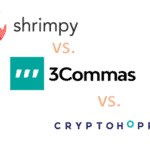Key Takeaways
- Under the draft, capital relief would be available to banks provided issuers of crypto demonstrate adequate safeguards against operational and market risks
- HKMA has circulated draft rules for consultation that would lower capital requirements for banks dealing with cryptocurrencies, but mainland-linked institutions are now expected to scale back their involvement.
Hong Kong’s ambition to build a regulated stablecoin hub is now facing major headwinds. The Hong Kong Monetary Authority (HKMA) has circulated draft rules for consultation that would lower capital requirements for banks dealing with crypto, but mainland-linked institutions are now expected to scale back their involvement.
The HKMA’s proposal, set to come into force in early 2026, adapts Basel standards to the city’s banking system. Under the draft, capital relief would be available to banks provided issuers of crypto demonstrate adequate safeguards against operational and market risks. The rules would mainly apply to assets issued on public blockchains, a segment regulators believe could benefit from clearer oversight.
While Hong Kong signals openness, Beijing appears to be tightening its grip. Reports indicate that Chinese authorities have recently ordered domestic companies to halt seminars and research on stablecoins, warning of potential abuse in illicit activity. Yet other signs suggest a more nuanced stance: discussions in Shanghai have touched on the possibility of yuan-denominated stablecoins to strengthen the currency’s role in global trade.
These policy crosscurrents come just as Hong Kong’s stablecoin licensing regime takes effect. The framework, which began on August 1 with a six-month transition period, attracted interest from 77 firms. As per local media reports, recent guidance is likely to discourage state-owned enterprises and Chinese banks from pursuing licenses in the near term.
Chinese regulators have also taken a stricter stance on stablecoins. In early August, firms were reportedly instructed to halt publishing research and holding seminars on the topic, citing concerns about their use in fraudulent activity. Still, discussions within the Shanghai State-owned Assets Supervision and Administration Commission considered the potential for yuan-backed stablecoins to promote international use of China’s currency.
Before the shift, several Chinese companies had shown interest in the Hong Kong framework. A China Merchants Bank subsidiary launched a Hong Kong-based institutional crypto exchange, while e-commerce giant JD.com and Ant International reportedly registered entities tied to possible stablecoin rollouts in Hong Kong and Singapore.









